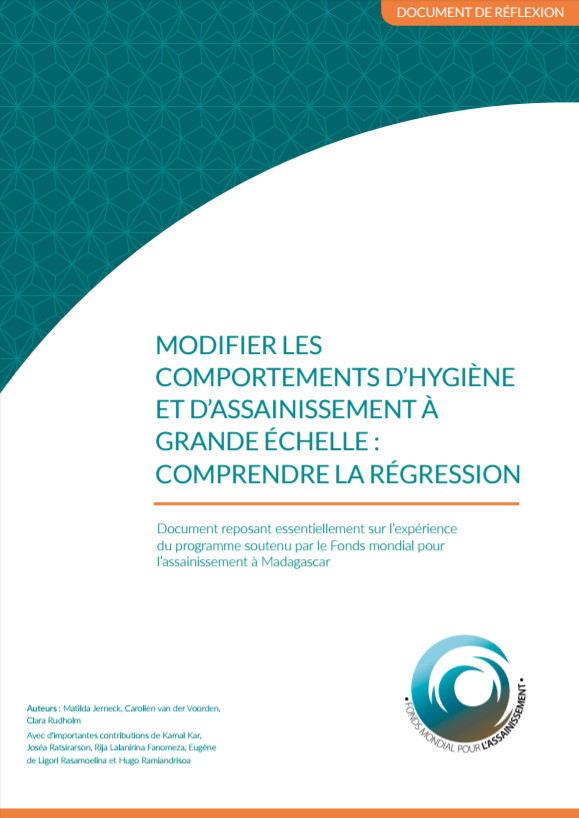Modifier les comportements d'hygiène et d'assainissement à grande échelle – Comprendre la régression
 |
Document reposant essentiellement sur l’expérience du programme soutenu par le Fonds mondial pour l’assainissement à Madagascar
Sanitation and Hygiene Behaviour Change at Scale: Understanding Slippage
Primarily based on experiences from the Global Sanitation Fund-supported programme in Madagascar
report Sep 2016 ; 48 pages
Aut.
Ed. WSSCC - Genève
Downloadable format: PdF
Downloadable from the publisher
Résumé:
Ce document de réflexion examine comment distinguer les nuances et les types de régression ; il étudie les stratégies qui visent à y répondre, à les prévenir et à les réduire ainsi que d’autres systèmes de suivi permettant de mieux appréhender la complexité de la régression. Les analyses et les réflexions reposent sur une expérience directe du terrain, provenant essentiellement du programme soutenu par le GSF à Madagascar. De plus, ce document est sous-tendu par un principe fondamental, à savoir que la régression est un aspect attendu des interventions en hygiène et assainissement qui sont axées sur la modification des comportements, surtout celles qui sont conduites à grande échelle, et qu’il ne s’agit pas d’un signe de l’échec de ces dernières. Abstract:
As sanitation and hygiene programmes mature, the challenge shifts from bringing communities to ODF status to sustaining this status. In this context, many programmes are confronted with the issue of slippage. This concept refers to a return to previous unhygienic behaviours, or the inability of some or all community members to continue to meet all ODF criteria. This paper explores how to discern slippage nuances and patterns, strategies to address, pre-empt and mitigate it as well as alternative monitoring systems that capture the complexity of slippage more fully. The analysis and reflections are based on direct field experience, primarily from the GSF-supported programme in Madagascar. Moreover, the underpinning principle of the paper is that slippage is an expected aspect of behaviour change-oriented sanitation and hygiene interventions, especially those at scale, and not a sign of failure thereof.
Keyword: |
Country: |
Publisher/Broadcaster: |
|
WSSCC
-
Water Supply and Sanitation Collaborative Council - Genève - Switzerland |
If there is a broken link, we will be pleased to receive a message: communication@pseau.org